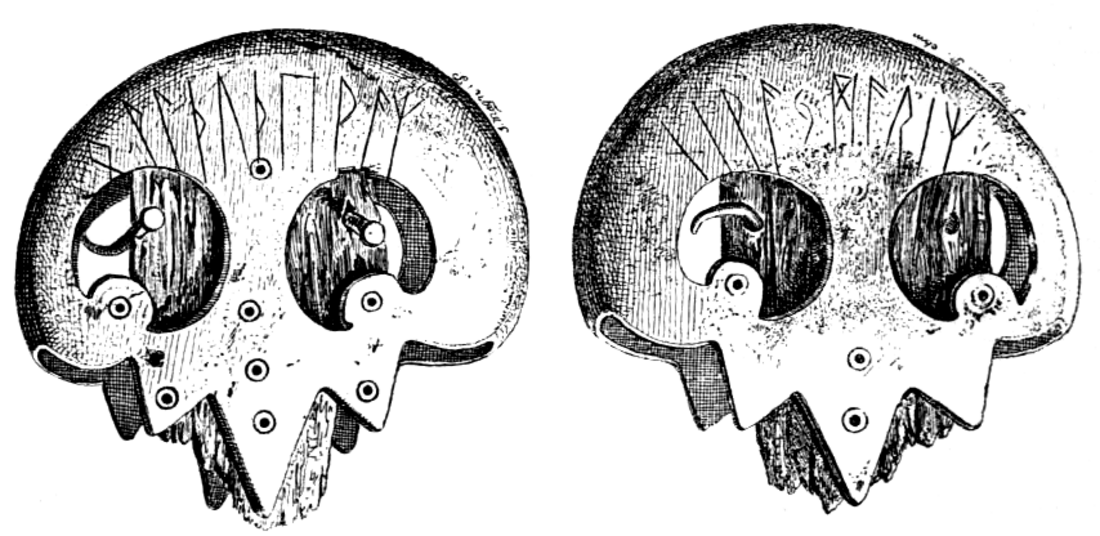Top Qs
Timeline
Chat
Perspective
Thorsberg chape
From Wikipedia, the free encyclopedia
Remove ads
The Thorsberg chape[1] (a bronze piece belonging to a scabbard) is an archeological find from the Thorsberg moor, Germany, that appears to have been deposited as a votive offering.[2] It bears an Elder Futhark runic inscription, one of the earliest known, dating to roughly 200 CE.


Archaeologists believe it was made in the region between the Rhine and the Elbe.[2][3][4]
ᛟᚹᛚᚦᚢᚦᛖᚹᚨᛉ
owlþuþewaz
/
/
ᚾᛁᚹᚨᛃᛖᛗᚨᚱᛁᛉ
niwaje͡mariz
"Wolthuthewaz is well-renowned," or "the servant of Ullr, the renowned."
The first element owlþu, for wolþu-, means "glory," "glorious one," cf. Old Norse Ullr, Old English wuldor. The second element, -þewaz, means "slave, servant." The whole compound is a personal name or title, "servant of the glorious one" or "servant/priest of Ullr." On the reverse, ni- is the negative particle, waje- corresponds to "woe, ill" (Old Norse vei), and the final element is -mariz "famous" (Old English mǣre) - the "e" and "m" are written together, as a bind-rune, an unusual early example but probably not linguistically significant.[5] The second word thus translates to "not ill-famous," i.e., "famous, renowned" or "not of ill fame, not dishonored." Similar double negatives are found on other runic inscriptions.[2] The translation of the inscription can thus be either "Wolthuthewaz is well-renowned," or "the servant of Ullr, the renowned." If the first part refers to the god Ullr, it is the only reference to that god from south of Denmark, and also, if a personal name, the only German example of a person named for a specific Germanic god.[4]
Another reading, avoiding the emendation of the first element, reads the first letter ideographically, "Othala," resulting in o[þalan] w[u]lþuþewaz / niwajmariz "inherited property of Wulthuthewaz, the renowned." However, the owner's name is not in the possessive case as would be expected with such a usage; moreover, the rune Fehu, signifying simply "property," would be more apposite; "Othala" can specifically denote real estate.[6]
It is possible that the inscription is poetic; it can be read as an alliterative long-line.[7]
Remove ads
See also
Notes
Wikiwand - on
Seamless Wikipedia browsing. On steroids.
Remove ads
